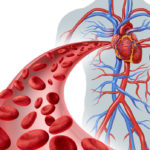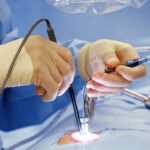Initial Impact: Discovering a cardiac problem
To discover that you have a Cardiac problem and require surgery is perceived to be a life-threatening event. This can impact on you physically, socially and emotionally. Initially you may experience a state of crisis and be overcome by emotions. This is a normal reaction to an abnormal event. It is not every day that you are told you have a heart condition, which may need surgery.
- Some of the reactions you will experience can include:
- Shock: you may have a feeling of unreality
- Denial: is a defence mechanism that reduces anxiety and other unpleasant emotions. You may deny the seriousness of the condition
- Anger that it has happened to you, ‘why me’!
- Loss: a sense of loss of the control of your life
- Feelings of loss, confusion, increased sense of vulnerability
- Fear of death, realising one’s own mortality
- Fear of resuming physical and sexual activity
- Anxiety regarding your health, operation. Is a natural response to physical or emotional stress
- Anxious about your goals, future ambitions, finances and work
- Anxious about changing life style habits
- Confusion due to family and role changes
- Depression: can be due to inability to carry out daily functions and tasks that provide us with a sense of identity and worth. Depression may cause sadness, resentment, lack of energy and weakness, loss of sex drive, difficulty in sleeping, irritability, difficulty in concentrating and pre-occupation with symptoms.
These feelings and reactions are a normal part of adjusting to a cardiac event such as an acute angina, heart attack or heart surgery. Many of the feelings and reactions you experience may re-occur over time. The Clinical Psychologist at Max is available to discuss any of these concerns with you and your family.
Adjustment Process: During Recovery:
When we go through a process of adjusting following a crisis, this process can be erratic. The stages may overlap, may not occur in a set order or you may move forward or backward.Reactions to a heart attack and/or surgery can be different for each person. After any illness we can experience a range of feelings and reactions. Anxiety, denial and depression are common reactions following a cardiac event either Heart Attack Angina or surgery. However we stress that if it starts to interfere with making necessary lifestyle changes or causes distress to you or those around you then we encourage you to seek professional help.
Adjustment Process: and Change
The Initial impact as discussed above is when many of the physical and emotional changes have to be faced and dealt with are realized.
Dealing with change after cardiac surgery the body reacts to different physical and emotional changes, which may affect our physical ability, work or domestic arrangements, even the role we have at home and work. It can also affect the way we think of ourselves, our body image. These changes may be temporary or permanent.
Re-negotiation of roles and responsibilities, who does what! You and your family may need to talk about any changes in role so that responsibilities can be renegotiated. Our feelings of worth are affected by what we do and from being needed, loved and cared for. We can adapt what we do so that we contribute.
Restoring a balance: you need to balance the need for support with the need for independence. Too much support may leave you feeling guilty, useless or incapable. Too much independence may be a risk to your health. Again, you need to discuss these issues with your family and friends to gain their support and understanding.
Communication: Effective communication is an important ingredient in the management of everyday stresses. Talk to you Carer, family and friends, let them know what is important to you.



